#university of southern mississippi
Text
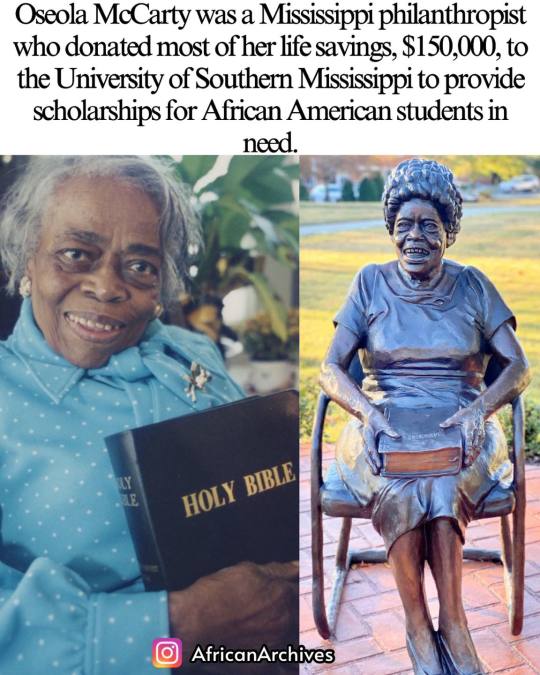
McCarty was born on March 7, 1908, in Shubuta, Mississippi. She was raised in nearby Hattiesburg by her aunt and grandmother. McCarty, who never married and had no children, lived frugally in a house without air conditioning. She never had a car or learned to drive, so she walked everywhere, including the grocery store that was one mile from her home.
When she was 8 years old, McCarty opened a savings account at a bank in Hattiesburg and began depositing the coins she earned from her laundry work. She would eventually open accounts in several local banks. By the time McCarty retired at age 86, her hands crippled by arthritis, she had saved $280,000. She set aside a pension for herself to live on, a donation to her church, and small inheritances for three of her relatives. The remainder—$150,000—she donated to the University of Southern Mississippi, a school that had remained all-white until the 1960s. McCarty stipulated that her gift be used for scholarships for Black students from southern Mississippi who otherwise would not be able to enroll in college due to financial hardship. Business leaders in Hattiesburg matched her bequest and hundreds of additional donations poured in from around the country, bringing the total endowment to nearly half a million dollars.
The first beneficiary of McCarty’s largesse was Stephanie Bullock, an 18-year-old honors student from Hattiesburg, who received a $1,000 scholarship. Bullock subsequently visited McCarty regularly and drove her around town on errands.
In 1998 the University awarded McCarty an honorary degree. She received an honorary doctorate from Harvard University, and President Bill Clinton awarded her the Presidential Citizens Medal.
McCarty died of liver cancer on September 26, 1999, at the age of 91. In 2019 McCarty’s home was moved to Hattiesburg’s Sixth Street Museum District and turned into a museum.
x
#oseola mccarty#philanthropist#university of southern mississippi#scholarship#black students#financial hardship#hattiesburg#mississippi#honorary degree#harvard university#presidential citizens medal#sixth street museum district#women's history month#history#black history
340 notes
·
View notes
Text


Southern Miss Soccer
#University of Southern Mississippi#Southern Miss#Southern Miss Golden Eagles#college soccer#soccer girls#athlete#female athletes#college athlete#college girl#bikini#athletes in bikinis
46 notes
·
View notes
Photo
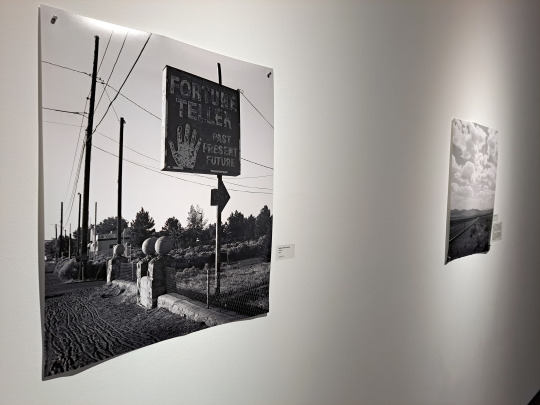
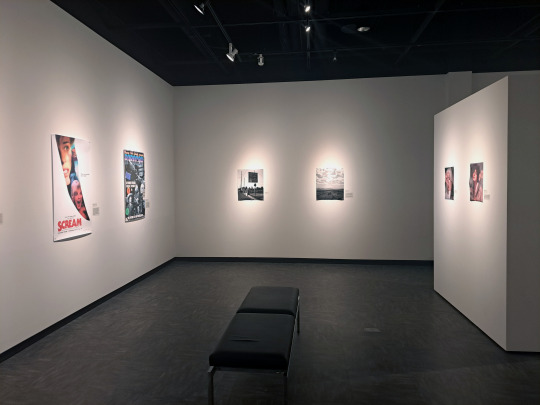
The University of Southern Mississippi’s Museum of Art
Southern Miss National Poster Show
January 26 - February 24
The National Poster Show features 34 posters that were designed by graphic artists from across the country. The jury process was based purely on artistic and design excellence and the works selected range from traditional posters and illustrations to more experimental works.
2 of my photos were featured in The University of Southern Mississippi’s Museum of Art, Southern Miss National Poster Show, see more about it through the link below.
https://www.usm.edu/news/2023/release/national-poster-show.php
#The University of Southern Mississippi’s Museum of Art#Museum of Art#art#art show#photo exhibition#exhibition#University of Southern Mississippi#Southern Miss National Poster Show#photography#photo#film#highway#sign#photographers on tumblr#photographer#photo show
16 notes
·
View notes
Text
2 notes
·
View notes
Text
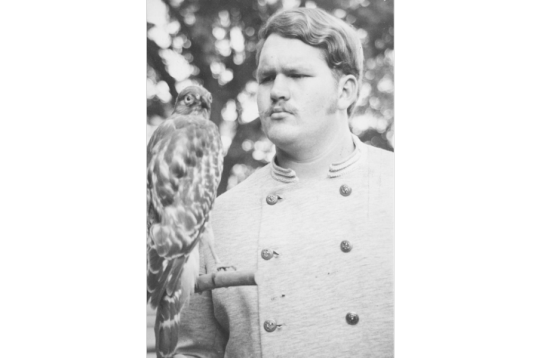
Cheerleader/Mascot: Robert Burns as "General Nat" with Golden Eagle; 1973
Photograph of Robert Burns as "General Nat" with Golden Eagle featured in the Student Printz on May 17, 1973. In 1953, General Nat (for Gen. Nathan Bedford Forrest) was approved as the Southerners’ mascot. The first General Nat was Archie Hughes, and Nat’s horse was named Son of Dixie. Also found In"Dearly bought, deeply treasured : the University of Southern Mississippi, 1912-1987," page 135.
RG002 University of Southern Mississippi Photographs
Digital Collections at the University of Southern Mississippi
1 note
·
View note
Text
K3mistry News Brief 📰
Brett Favre is in Hot Water
The following speaks on Brett Favre’s role in the Mississippi welfare scandal.
Narrated by: J. Stokes
#nfl#nfl football#national football league#share#promote#repost#k3mistry productions#listen#learn#k3mistryproductions#welfare#mississippi#money heist#money#brett favre#university of southern mississippi#scandal#antonio brown
0 notes
Text
Southern Miss Now recently caught up with Laura Laughlin, director of Fraternity and Sorority Life (FSL) at The University of Southern Mississippi (USM) to chat with her about her duties in this role, the achievements of students in USM’s fraternities and sororities, her goals as director, and why students should consider membership in one of the university’s chapters.
#University of Southern Mississippi#USM#Hattiesburg#Mississippi#sorority#sororitygirls#sorority girls#sororitylife#sorority life#sisterhood#greek life#go greek
0 notes
Photo

Margaret Walker in Beinecke Library, [with Donald Gallup], Yale University, New Haven, CT, April 1978; in William R. Ferris, Margaret Walker: A Photography Essay, «Study the South», Center for the Study of Southern Culture at the University of Mississippi, University, MS, 2015 (pdf here) [eGrove, University of Mississippi, University, MS. Photo: © William R. Ferris, William R. Ferris Collection, Southern Folklife Collection, Wilson Library, University of North Carolina at Chapel Hill, N.C.]
#photography#journal#margaret walker#donald gallup#william r. ferris#beinecke rare book and manuscript library#study the south#center for the study of southern culture at the university of mississippi#william r. ferris collection#wilson library#egrove#1970s#2010s
22 notes
·
View notes
Text

oh this one is good. this one is forever. i get it.
#pov you are a university of southern mississippi student in 2015 and you are killing me years later with one poem#samael speaks#poetry
7 notes
·
View notes
Text
#brett favre#foundation intended for disadvantaged children and cancer patients went to support MSU#money went to university of southern Mississippi#to finance volleyball 🏐 center#the more you know
0 notes
Text

Oseola McCarty was just five feet tall and weighed less than one hundred pounds. She quit school in the 6th grade when her grandmother that raised her became ill and needed care. “I would have gone back.” she said, “But the people in my class had done gone on, and I was too big. I wanted to be with my class.” Instead she worked. She washed clothes and she saved. "Every month I'd save the same and put it away. I was consistent." She saved more than she could ever need. So in 1995, in her late 80s, she donated $300,000 to the University of Southern Mississippi, the college in her hometown, to finance a scholarship for low-income students.
In her words, "'I wanted to share my wealth with the children.” said Miss McCarty, whose only real regret is that she never went back to school. “I never minded work, but I was always so busy, busy. Maybe I can make it so the children don't have to work as hard as I did.'"
An amazing story
264 notes
·
View notes
Text
Just in case, some might enjoy. Had to organize some notes.
These are just some of the newer texts that had been promoted in the past few years at the online home of the American Association of Geographers. At: [https://www.aag.org/new-books-for-geographers/]
Tried to narrow down selections to focus on critical/radical geography; Indigenous, Black, anticolonial, oceanic/archipelagic, carceral, abolition, Latin American geographies; futures and place-making; colonial and imperial imaginaries; emotional ecologies and environmental perception; confinement, escape, mobility; housing/homelessness; literary and musical ecologies.
---
New stuff, early 2024:
A Caribbean Poetics of Spirit (Hannah Regis, University of the West Indies Press, 2024)
Constructing Worlds Otherwise: Societies in Movement and Anticolonial Paths in Latin America (Raúl Zibechi and translator George Ygarza Quispe, AK Press, 2024)
Fluid Geographies: Water, Science, and Settler Colonialism in New Mexico (K. Maria D. Lane, University of Chicago Press, 2024)
Hydrofeminist Thinking With Oceans: Political and Scholarly Possibilities (Tarara Shefer, Vivienne Bozalek, and Nike Romano, Routledge, 2024)
Making the Literary-Geographical World of Sherlock Holmes: The Game Is Afoot (David McLaughlin, University of Chicago Press, 2025)
Mapping Middle-earth: Environmental and Political Narratives in J. R. R. Tolkien’s Cartographies (Anahit Behrooz, Bloomsbury Publishing, 2024)
Midlife Geographies: Changing Lifecourses across Generations, Spaces and Time (Aija Lulle, Bristol University Press, 2024)
Society Despite the State: Reimagining Geographies of Order (Anthony Ince and Geronimo Barrera de la Torre, Pluto Press, 2024)
---
New stuff, 2023:
The Black Geographic: Praxis, Resistance, Futurity (Camilla Hawthorne and Jovan Scott Lewis, Duke University Press, 2023)
Activist Feminist Geographies (Edited by Kate Boyer, Latoya Eaves and Jennifer Fluri, Bristol University Press, 2023)
The Silences of Dispossession: Agrarian Change and Indigenous Politics in Argentina (Mercedes Biocca, Pluto Press, 2023)
The Sovereign Trickster: Death and Laughter in the Age of Dueterte (Vicente L. Rafael, Duke University Press, 2022)
Ottoman Passports: Security and Geographic Mobility, 1876-1908 (İlkay Yılmaz, Syracuse University Press, 2023)
The Practice of Collective Escape (Helen Traill, Bristol University Press, 2023)
Maps of Sorrow: Migration and Music in the Construction of Precolonial AfroAsia (Sumangala Damodaran and Ari Sitas, Columbia University Press, 2023)
---
New stuff, late 2022:
B.H. Roberts, Moral Geography, and the Making of a Modern Racist (Clyde R. Forsberg, Jr.and Phillip Gordon Mackintosh, Cambridge Scholars Publishing, 2022)
Environing Empire: Nature, Infrastructure and the Making of German Southwest Africa (Martin Kalb, Berghahn Books, 2022)
Sentient Ecologies: Xenophobic Imaginaries of Landscape (Edited by Alexandra Coțofană and Hikmet Kuran, Berghahn Books 2022)
Colonial Geography: Race and Space in German East Africa, 1884–1905 (Matthew Unangst, University of Toronto Press, 2022)
The Geographies of African American Short Fiction (Kenton Rambsy, University of Mississippi Press, 2022)
Knowing Manchuria: Environments, the Senses, and Natural Knowledge on an Asian Borderland (Ruth Rogaski, University of Chicago Press, 2022)
Punishing Places: The Geography of Mass Imprisonment (Jessica T. Simes, University of California Press, 2021)
---
New stuff, early 2022:
Belly of the Beast: The Politics of Anti-fatness as Anti-Blackness (Da’Shaun Harrison, 2021)
Coercive Geographies: Historicizing Mobility, Labor and Confinement (Edited by Johan Heinsen, Martin Bak Jørgensen, and Martin Ottovay Jørgensen, Haymarket Books, 2021)
Confederate Exodus: Social and Environmental Forces in the Migration of U.S. Southerners to Brazil (Alan Marcus, University of Nebraska Press, 2021)
Decolonial Feminisms, Power and Place (Palgrave, 2021)
Krakow: An Ecobiography (Edited by Adam Izdebski & Rafał Szmytka, University of Pittsburgh Press, 2021)
Open Hand, Closed Fist: Practices of Undocumented Organizing in a Hostile State (Kathryn Abrams, University of California Press, 2022)
Unsettling Utopia: The Making and Unmaking of French India (Jessica Namakkal, 2021)
---
New stuff, 2020 and 2021:
Mapping the Amazon: Literary Geography after the Rubber Boom (Amanda Smith, Liverpool University Press, 2021)
Geopolitics, Culture, and the Scientific Imaginary in Latin America (Edited by María del Pilar Blanco and Joanna Page, 2020)
Reconstructing public housing: Liverpool’s hidden history of collective alternatives (Matt Thompson, University of Liverpool Press, 2020)
The (Un)governable City: Productive Failure in the Making of Colonial Delhi, 1858–1911 (Raghav Kishore, 2020)
Multispecies Households in the Saian Mountains: Ecology at the Russia-Mongolia Border (Edited by Alex Oehler and Anna Varfolomeeva, 2020)
Urban Mountain Beings: History, Indigeneity, and Geographies of Time in Quito, Ecuador (Kathleen S. Fine-Dare, 2019)
City of Refuge: Slavery and Petit Marronage in the Great Dismal Swamp, 1763-1856 (Marcus P. Nevius, University of Georgia Press, 2020)
63 notes
·
View notes
Text
GREETINGS FROM MEOWTER SPACE.
In my travels I've come to find that I have an extremely strange family background. I'm going to be talking about it in some essays, which may contain descriptions of abuse and neglect. Here's the first one (it's long as fuck.)
On my mom's side, my great great grandmother was Creek. She was alive when I was born, and we briefly met. She was over 125 years old (nobody knows how old exactly.) The men on that side, who were all Scottish, died in their early 40s, except for my grandfather, who left when my mom was a kid. (I met him once, but my mom didn't want me to be around anyone Christian as a kid, so I never met anyone else on that side of the family.) I barely know anything about my Scottish ancestry, although growing up we called the native grapes "bullises," which is a Gaelic word for plums (they're also called muscadines, but I don't know what the truth is anymore.)
My family were subsistance farmers since before colonization, until my grandma became a schoolteacher. Our family moved to what would later be the Free State of Jones from what would later be Alabama, though I'm not sure why. During the Civil War, people in Jones county refused to fight, since nobody owned slaves in the area, and it was declared a Free State. My grandma lives in the Free State, in abject poverty with my uncle and his wife, who just scream at each other and beat their kids and neglect their 15 hoarded dogs all day. And if they have a problem with me saying so, they can eat shit and die.
My mom went to school for anthropology, and taught geology at the University of Southern Mississippi. She was extremely ashamed of how poor our background is, and I wasn't allowed to visit family much, although I wanted to very badly. I got to live with my grandma and my two adopted uncles who are around my age for a little while when we were kids, and they're some of the only positive childhood memories I have. I was extremely isolated and abused, especially by my step dad, who is currently (to my knowledge) employed as a programmer at a major video game company, as well as being a child molester starting when I was 2 or 3 years old (some of my earliest memories.) His name is Rigel Cameron Freeman. I ran away when I was 16 to live with my dad. When I told my mom what he did, she called me a liar and quit speaking to me, and that was the last I heard from her directly. So far as I know, she's been in mental hospitals pretty much since I left.
My dad's mom, whose first name was Ellen, was Ashkenazi Jewish, descended from a family who left Germany before the holocaust. She was a beatnik who was friends with Jack Kerouac and Allen Ginsburg, and she had personal beef with Grace Slick over a boyfriend. My dad's first guitar was a gift from Cat Stevens, although this was something he was a little embarrassed about and only mentioned to me once. She was especially close friends with Tiny Tim. She was in California trying to break into acting, and almost got a part in the Godfather allegedly (actually all of this is alleged by my dad, I only met her once. He really didn't like her, so I don't think he would make it up.)
Then she met my grandfather, Bob Marshall, who was probably in California to do drugs (sacred family tradition.) I have reason to believe he was mostly Choctaw and possibly Irish, although on that side of the family it's traditional to claim to be "French or Italian" unless you're very drunk, and then it's okay to be Indian. They moved up to Alaska and lived on the Athabaskan reservation, where my father, Rogan Russell Marshall, was born on April 19. Later, my grandfather became a civil rights lawyer, and he defended the right for prisoners with AIDS to be desegregated (basically anyone with AIDS would die in solitary before that.)
My dad got into Emerson, dropped out because no one could afford textbooks, moved to Mississippi and started this crazy punk band, and then went ahead and wrote some movies anyway. My favorite is called the Attic Expeditions, it features Seth Green, Jeffery Combs, and Alice Cooper, and it's very trippy and fun. Unfortunately, he became disabled from the same autoimmune condition I have, ankylosing spondylitis, which, if you're born male, has much more severe symptoms (which is why I chose not to start testosterone.) AS used to be thought of as genetic, but has recently been linked to environmental pollutants, and I was likely exposed to something released by one of our many chemical factories (my uncle who abuses his kids and dogs is adopted, I mentioned earlier, grew up in my grandma's house when we were kids together, and has the same symptoms, and multiple people who lived on the same Hattiesburg street as my dad in the 90s were diagnosed.) He was living in Massachussetts in his mom's basement when he married my step mom, a public defense attourney, to get health insurance, and they lived in Miami for eight years together until she left him, shortly after I moved in.
After that, I had to drop out of high school, and I lived in hell for about seven years while I worked full time, usually multiple jobs, to take care of us, and all the cats he would bring home (as many as 13, but I ran my house like a cat ranch and it was kind of beautiful.) His physical and mental health was dogshit, he wouldn't stop doing hard drugs, and our relationship was so hopelessly abusive that I had to quit speaking to him as well. My feelings are complicated because, while I love and admire his work, and he taught me a lot of extremely valuable and positive things, the things he did to me would put him in prison if I believed in the law. I owe him everything, and at the same time, I almost wish we'd never met (I'll have to talk about that in another post as well, because it's a lot, and exremely heavy.)
My third parent, Scott Panther, I honestly don't know very well. According to local legend, and there are many about him, he's Scottish and Cherokee. He was close friends with my parents before I was born, helped start Rong (and probably came up with the best ideas for it.) He was my mom's boyfriend for a long time before I was born.
My mom met Scott and Rogan at a Rong show, I was conceived after a Rong show (Scott drove Rogan to her house), and the night I was born there was a Rong show. Scott was overdosing when my mom went into labor, and I was born at 4 AM while multiple tornadoes passed through town. Later that night, he was ready to play the show (hats off). No one told Rogan I was born, though in the full video of the show he mentions the other people in town who were born on April 18. Unfortunately, the video is probably lost - he gave all the Rong tapes to someone I don't know, and he didn't say who (he may have even been lying and threw them away.)
I inherited a lot of personality traits from Scott, as many people who know us have noticed, although I gained them not through direct teaching, or through any modern understanding of genetics. I've read that before colonization these kind of things were more common and better understood.
27 notes
·
View notes
Photo

Margaret Walker with Aurelia Young, Ferris Home, 1700 Jefferson Avenue (Oxford, Mississippi), 1988; in William R. Ferris, Margaret Walker: A Photography Essay, «Study the South», Center for the Study of Southern Culture at the University of Mississippi, University, MS, 2015 (pdf here) [eGrove, University of Mississippi, University, MS. Photo: © William R. Ferris, William R. Ferris Collection, Southern Folklife Collection, Wilson Library, University of North Carolina at Chapel Hill, N.C.]
#photography#journal#margaret walker#aurelia young#william r. ferris#study the south#center for the study of southern culture at the university of mississippi#william r. ferris collection#wilson library#egrove#1970s#2010s
13 notes
·
View notes
Text
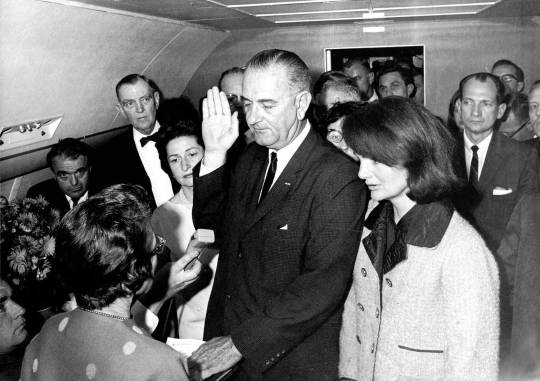
LETTERS FROM AN AMERICAN
November 22, 2023
HEATHER COX RICHARDSON
NOV 23, 2023
“It all began so beautifully,” Lady Bird remembered. “After a drizzle in the morning, the sun came out bright and beautiful. We were going into Dallas.”
It was November 22, 1963, and President John F. Kennedy and First Lady Jacqueline Kennedy were visiting Texas. They were there, in the home state of Vice President Lyndon Baines Johnson and his wife, Lady Bird, to try to heal a rift in the Democratic Party. The white supremacists who made up the base of the party’s southern wing loathed the Kennedy administration’s support for Black rights.
That base had turned on Kennedy when he and his brother, Attorney General Robert F. Kennedy, had backed the decision of the U.S. Court of Appeals for the Fifth Circuit in fall 1962 saying that army veteran James Meredith had the right to enroll at the University of Mississippi, more commonly known as Ole Miss.
When the Department of Justice ordered officials at Ole Miss to register Meredith, Mississippi governor Ross Barnett physically barred Meredith from entering the building and vowed to defend segregation and states’ rights.
So the Department of Justice detailed dozens of U.S. marshals to escort Meredith to the registrar and put more than 500 law enforcement officers on the campus. White supremacists rushed to meet them there and became increasingly violent. That night, Barnett told a radio audience: “We will never surrender!” The rioters destroyed property and, under cover of the darkness, fired at reporters and the federal marshals. They killed two men and wounded many others.
The riot ended when the president sent 20,000 troops to the campus. On October 1, Meredith became the first Black American to enroll at the University of Mississippi.
The Kennedys had made it clear that the federal government would stand behind civil rights, and white supremacists joined right-wing Republicans in insisting that their stance proved that the Kennedys were communists. Using a strong federal government to regulate business meant preventing a man from making all the money he could; protecting civil rights would take tax dollars from white Americans for the benefit of Black and Brown people. A bumper sticker produced during the Mississippi crisis warned that “the Castro Brothers”—equating the Kennedys with communist revolutionaries in Cuba—had gone to Ole Miss.
That conflation of Black rights and communism stoked such anger in the southern right wing that Kennedy felt obliged to travel to Dallas to try to mend some fences in the state Democratic Party.
On the morning of November 22, 1963, the Dallas Morning News contained a flyer saying the president was wanted for “treason” for “betraying the Constitution” and giving “support and encouragement to the Communist inspired racial riots.” Kennedy warned his wife that they were “heading into nut country today.”
But the motorcade through Dallas started out in a party atmosphere. At the head of the procession, the president and first lady waved from their car at the streets “lined with people—lots and lots of people—the children all smiling, placards, confetti, people waving from windows,” Lady Bird remembered. “There had been such a gala air,” she said, that when she heard three shots, “I thought it must be firecrackers or some sort of celebration.”
The Secret Service agents had no such moment of confusion. The cars sped forward, “terrifically fast—faster and faster,” according to Lady Bird, until they arrived at a hospital, which made Mrs. Johnson realize what had happened. “As we ground to a halt” and Secret Service agents began to pull them out of the cars, Lady Bird wrote, “I cast one last look over my shoulder and saw in the President’s car a bundle of pink, just like a drift of blossoms, lying on the back seat…Mrs. Kennedy lying over the President’s body.”
As they waited for news of the president, LBJ asked Lady Bird to go find Mrs. Kennedy. Lady Bird recalled that Secret Service agents “began to lead me up one corridor, back stairs, and down another. Suddenly, I found myself face to face with Jackie in a small hall…outside the operating room. You always think of her—or someone like her—as being insulated, protected; she was quite alone. I don’t think I ever saw anyone so much alone in my life.”
After trying to comfort Mrs. Kennedy, Lady Bird went back to the room where her own husband was. It was there that Kennedy’s special assistant told them, “The President is dead,” just before journalist Malcolm Kilduff entered and addressed LBJ as “Mr. President.”
Officials wanted LBJ out of Dallas as quickly as possible and rushed the party to the airport. Looking out the car window, Lady Bird saw a flag already at half mast and later recalled, “[T]hat is when the enormity of what had happened first struck me.”
In the confusion—in addition to the murder of the president, no one knew how extensive the plot against the government was—the attorney general wanted LBJ sworn into office as quickly as possible. Already on the plane to return to Washington, D.C., the party waited for Judge Sarah Hughes, a Dallas federal judge. By the time Hughes arrived, so had Mrs. Kennedy and the coffin bearing her husband’s body. “[A]nd there in the very narrow confines of the plane—with Jackie on his left with her hair falling in her face, but very composed, and me on his right, Judge Hughes, with the Bible, in front of him and a cluster of Secret Service people and Congressmen we had known for a long time around him—Lyndon took the oath of office,” Lady Bird recalled.
As the plane traveled to Washington, D.C., Lady Bird went into the private presidential cabin to see Mrs. Kennedy, passing President Kennedy’s casket in the hallway.
Lady Bird later recalled: “I looked at her. Mrs. Kennedy’s dress was stained with blood. One leg was almost entirely covered with it and her right glove was caked…with blood—her husband’s blood. She always wore gloves like she was used to them. I never could. Somehow that was one of the most poignant sights—exquisitely dressed and caked in blood. I asked her if I couldn’t get someone in to help her change and she said, ‘Oh, no. Perhaps later…but not right now.’”
“And then,” Lady Bird remembered, “with something—if, with a person that gentle, that dignified, you can say had an element of fierceness, she said, ‘I want them to see what they have done to Jack.’”
LETTERS FROM AN AMERICAN
HEATHER COX RICHARDSON
#Letters from an American#Heather cox Richardson#history#JFK#the Presidency#racism#JFK Assassination#politics
35 notes
·
View notes